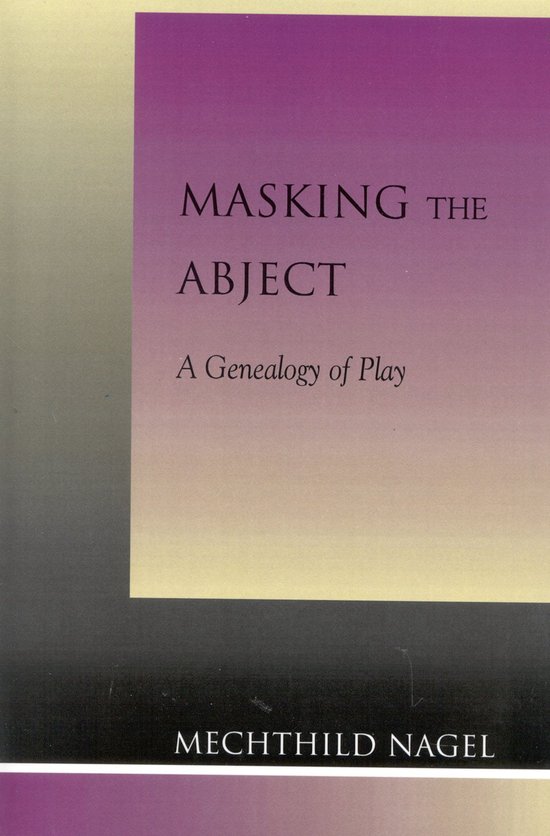
Masking the Abject
This study traces the beginnings of the malediction of play in western metaphysics. It analyzes how the distinction between the serious and the playful developed, charting play's changing ontological status, and ethical and aesthetic dimensions, from the logocentric to the bacchanalian.
Masking the Abject traces the beginnings of the malediction of play in Western metaphysics to Aristotle. Mechthild Nagel's innovative study demonstrates how play has served as a 'castaway' in western philosophical thinking: It is considered to be repulsive and loathsome, yet also fascinating and desirable. The book illustrates how play 'succeeds' and proliferates after Hegel—despite its denunciation by classical philosophers—entering Marxist, phenomenological, postmodern, and feminist discourses. This work provides the reader with a superb analyisis of how the distinction between the serious and the playful has developed over time, charting play's changing ontological status, and ethical and aesthetic dimensions, from the logocentric to the bacchnalian.
Masking the Abject traces the beginnings of the malediction of play in Western metaphysics to Aristotle. Mechthild Nagel's innovative study demonstrates how play has served as a 'castaway' in western philosophical thinking: It is considered to be repulsive and loathsome, yet also fascinating and desirable. The book illustrates how play 'succeeds' and proliferates after Hegel—despite its denunciation by classical philosophers—entering Marxist, phenomenological, postmodern, and feminist discourses. This work provides the reader with a superb analyisis of how the distinction between the serious and the playful has developed over time, charting play's changing ontological status, and ethical and aesthetic dimensions, from the logocentric to the bacchnalian.
| Auteur | | Mechthild Nagel |
| Taal | | Engels |
| Type | | Hardcover |
| Categorie | | Religie, Spiritualiteit & Filosofie |



